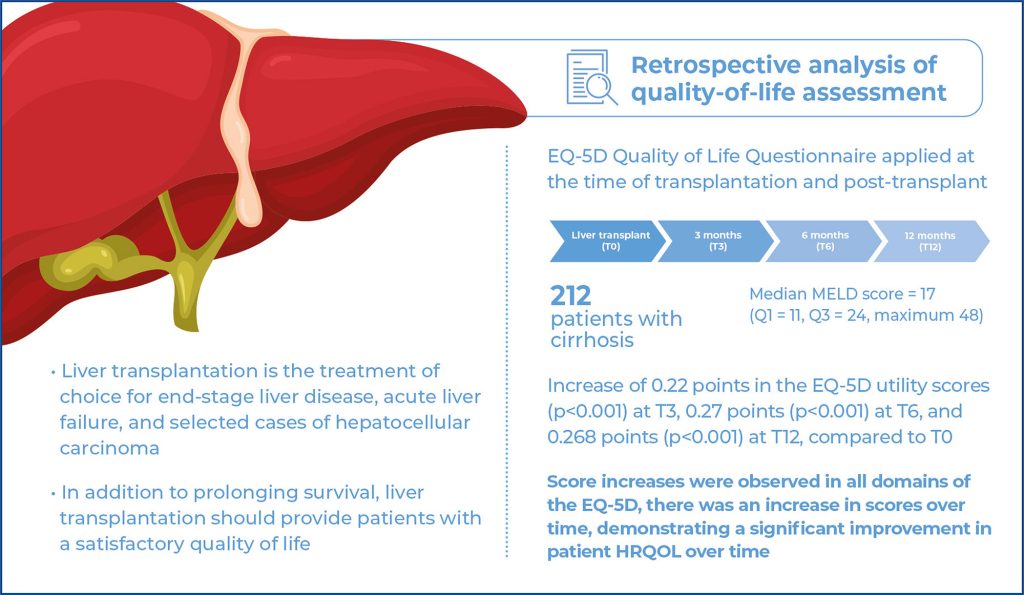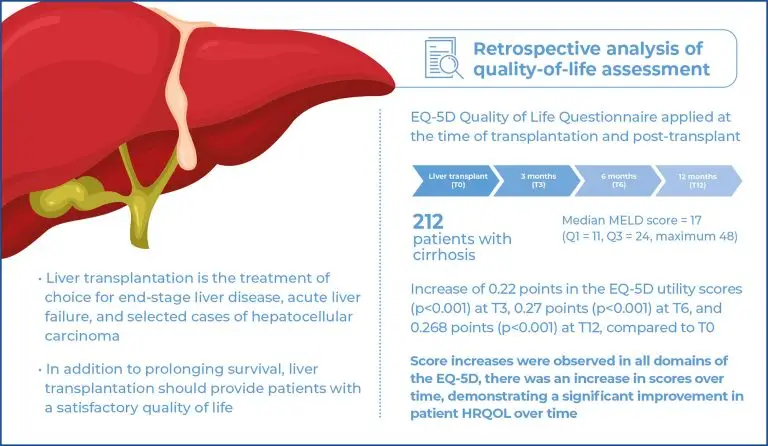einstein (São Paulo). 28/mar/2025;23:eAO0565.
Impact of liver transplantation on the quality of life of a cohort of high-risk recipients
DOI: 10.31744/einstein_journal/2025AO0565
Highlights
■ Liver transplantation improves health-related quality of life in patients with cirrhosis and high MELD scores.
■ Significant health-related quality of life improvements occur within three months of transplantation.
■ Multidisciplinary care programs enhance post-iver transplantation physical and mental recovery.
■ Sustained health-related quality of life gains highlight the long-term benefits of liver transplantation.
ABSTRACT
Objective:
To assess the effects of liver transplantation on the health-related quality of life of patients with cirrhosis on the waiting list for transplantation.
Methods:
This retrospective study analyzed HRQOL using the EQ-5D questionnaire before (T0), and 3 (T3), 6 (T6), and 12 (T12) months after, transplantation. The questionnaire comprised five health status scores, which were also combined into a single utility score. Changes in each dimension and in the utility score were examined.
Results:
A total of 212 patients were included in the study, with a mean age of 54 (SD, 12) years, and a median Model for End-Stage Liver Disease score of 17 (Q1= 11; Q3= 24). The most frequent etiology was chronic alcoholism (26.9%). Improvements in EQ-5D utility scores were registered at all post-transplantation time points compared to the score at T0: an increase of 0.22 points (p<0.001) at T3, 0.27 (p<0.001) at T6, and 0.268 (p<0.001) at T12. Scores increased over time in all domains of the EQ-5D.
Conclusion:
In a large sample of high-risk transplant recipients, a significant improvement in HRQOL occurred three months after transplantation, and was sustained over the one-year follow-up period.
[…]
228



